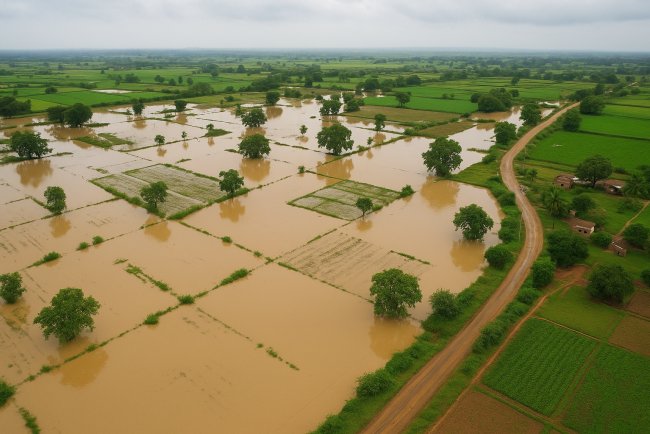NITI Aayog Launches Report on Women’s Role in India’s Financial Growth

NITI Aayog released a report "From Borrowers to Builders: Women's Role in India's Financial Growth Story" highlighting the increasing number of women in the nation's financial ecosystem. The report, co-authored with TransUnion CIBIL, NITI Aayog's Women Entrepreneurship Platform (WEP), and MicroSave Consulting (MSC), shows the increasing credit awareness among women and increasing participation of women in business loans and self-reported financial activity.
Growth in Women Borrowers and Credit Awareness
According to the report, 27 million women were actually monitoring their credit scores in December 2024, a 42% increase from the previous year. This is a clear reflection of the rising financial literacy and credit awareness among Indian women. More and more women, particularly from non-metro locations, are adopting credit self-monitoring, with a 48% increase in non-metro locations and 30% in metro locations.
The data also indicate that 49% of self-monitoring women borrowers belonged to Maharashtra, Tamil Nadu, Karnataka, Uttar Pradesh, and Telangana, with the south contributing the most at 10.2 million women actively monitoring their credit scores. Northern and central states such as Rajasthan, Uttar Pradesh, and Madhya Pradesh have seen the highest growth in active women borrowers over the past five years.
Women's Growing Contribution to Business and Gold Loans
The report shows a 14% increase in women's contribution to business loan origination since 2019, and a 6% increase in their share of gold loans. Women accounted for 35% of all business borrowers as of December 2024, showing a rising trend towards entrepreneurship and self-reliance. The increase in credit usage reflects a broader trend of women leveraging financial products to establish and expand their businesses.
Despite such progress, credit aversion, negative banking experience, credit preparedness obstacles, and collateral and guarantor problems persist. Such circumstances make women ineligible for complete access to the financial system, and it is due to this that policymakers and financial institutions are required to implement special interventions.
Financial Institutions and Gender-Smart Products
The growing financial participation of women offers the potential for banks and financial institutions to develop gender-aware financial products sensitive to women's needs. Breaking down structural impediments to women's access to credit can further enhance their economic activity and entrepreneurial performance.
The same report also states the roles played by financial institutions in promoting inclusive credit products and services. Integration of women entrepreneurs into financial literacy programs, mentorship, and market linkages will be essential in ensuring increased and sustained improvement in this trend.
Future of Women's Financial Inclusion in India
With increasing credit awareness and financial literacy, the participation of women in India's financial sector is also going to increase even more. Women Entrepreneurship Platform (WEP) is also enabling the efforts in facilitating increased access to finance for women. Financing Women Collaborative (FWC) has also been launched under WEP to encourage financial sector players to be a part of this movement.
Even as the statistics reflect improvement, it is important that the current challenges in the financial sector be addressed so that women borrowers and entrepreneurs can participate and reap the maximum benefits of India's economic development. Expanding financial literacy programs and policy measures that facilitate simpler access to credit will be vital in ensuring inclusive financial development.
Conclusion
Publication of the report is a milestone towards gaining recognition of women's enhanced contribution to India's financial economy. The sudden explosion in credit watching and loan involvement is a symptom of an economic empowerment movement. With concerted collaboration from the government, the financial sector institutions, and the policy makers, the country can continue to enhance women's financial inclusion and promote gender-balanced economic development.
Source: Press Information Bureau (PIB) Delhi, Government of India.
What's Your Reaction?

















